Islamophobia, referred to as deep-seated prejudice and resentment against Muslims or Islam, continues to be a pervasive issue in the US, with Indian Muslims particularly being projected as a constant threat to the rest of the population.
Earlier in 2024, a survey was held by the Indian American Muslim Council (IAMC) in collaboration with ReThink Media to analyse the perspectives Indian American Muslims hold about the rising Hindu nationalism and how their lives are affected by it as residents of the United States. The survey responses reveal the prevalence and prominence of Hindu nationalism amidst the Indian populace and its pernicious impact on well-being, workplace relationships and social cohesion.
The roots of hate
Hindu nationalism has increasingly come to be equated with Hindutva. This right-wing political ideology declares Hindus to be superior to all other Indians and attempts to authorise the hatred and violence perpetrated against the non-Hindus.
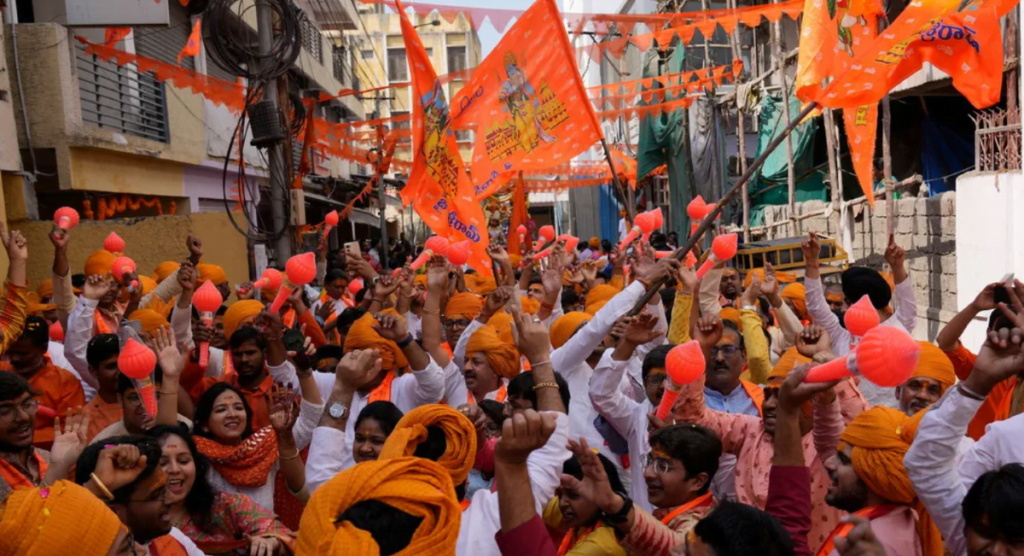
The roots of heightened discrimination against Indian American Muslims in the US, a minority group in the country, can be traced in part to 9/11. The term used by media houses and government officials to describe the cause of the incident was a “Muslim” issue, rather than a “terror” issue. In the aftermath of the incident, a widely held belief surfaced, which suggested that Muslims are more susceptible to violence than any other group residing in the US.
Statistics by the FBI reflect that hate crimes perpetrated against Muslims witnessed a surge after 9/11 and have been on the rise since, subjecting them to varying degrees of discrimination, harassment, bullying and stereotyping. This Xenophobic and Islamophobic rancour reduces migrants and asylum seekers to a political object, holding the entire faith accountable because of the actions of a few individuals.
Tensions and polarisation: a part and parcel of hindutva
Findings from the survey conducted by the IAMC highlight that a vast proportion of Indian American Muslims have been encountering discrimination and harassment at the hands of the Hindus who are part of their social contacts. With Hindu nationalism gaining momentum over the last decade, the relationships between Indian American Muslims and Hindus in the States have witnessed a setback.
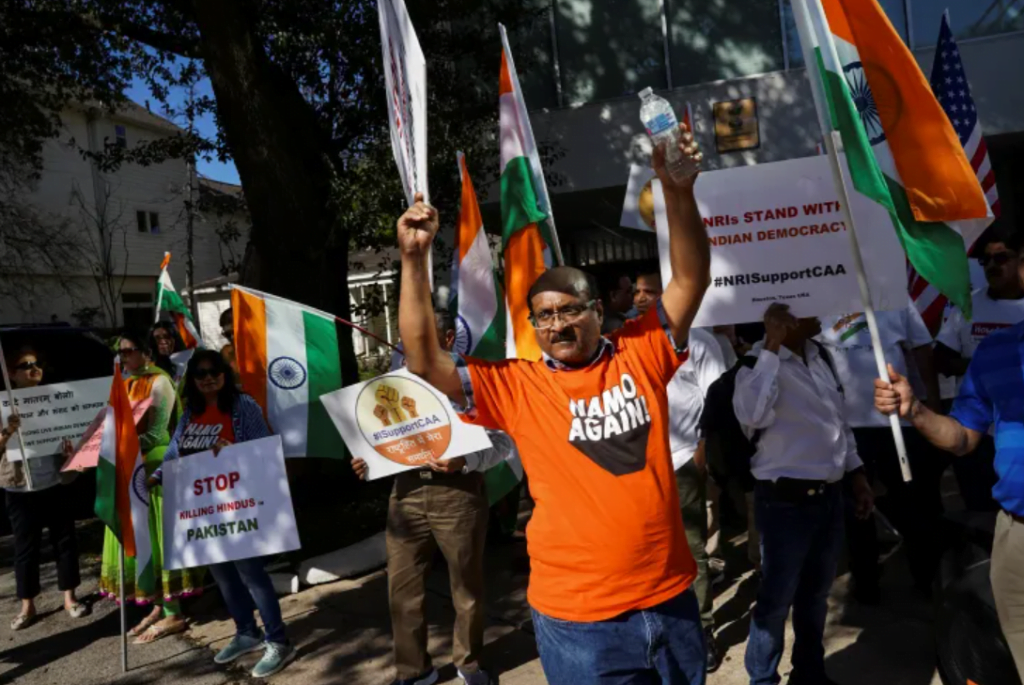
Indian American Muslims feel a sense of alienation, lack of trust and heightened isolation, evident in their exclusion from Indian American social gatherings. This has been aggravated with the consistent victories of the Bharatiya Janata Party back in India. About eighty per cent of the respondents reported feeling uncomfortable in Indian American events.
Hate received on social media platforms like LinkedIn, Facebook and WhatsApp takes a toll on the well-being and mental health of Indian American Muslims, leading them to harbour feelings of fear, and hostility, and exhausting them emotionally. For instance, a post uploaded by the IAMC on Facebook highlights the power of social media in furthering violence and hate crimes against Muslims. When asked to specify the instances of prejudice in professional settings, they mentioned their tenure being terminated, not being considered for promotions, or deliberately being excluded from networks controlled by Hindu colleagues.
This implies that Hindu nationalism has infiltrated personal and public, social and work-related aspects of their lives.
Complex identities
Public officials often fuel prejudices, redirecting attention away from other aspects of their identity, from illiteracy, poverty, difficulties in procuring a livelihood and fear of being deported, only to focus on merely one aspect: terror. What this implies is that the remaining aspects of their lives, from struggling in their professional lives to subjection to poverty are invisibilised.

In this light, it is imperative to note that terror attacks are not the only contributor to stereotypes and prejudices about Indian Muslims in the country, other causes are the official policies legitimising and normalising their subordination, permeating classrooms, immigration policies and the law. In the words of Fahd Ahmed, Executive Director, of DRUM South Asian Organising Centre, if the official bodies and organs (for instance, the police) are “indiscriminate against (American Muslim) communities, how can we expect the public to be any different?“
For instance, as part of his election campaign in 2015, Donald Trump emphasised the need for a ban forbidding Muslims from entering the US as part of his immigration policy.
Transcending borders
Hindu nationalism is not only confined to India, it is a global phenomenon. The survey is a clear reflection of the exclusion and marginalisation experienced by Indian American Muslims in spaces where they gathered for cultural unification with American Indian non-Muslims. This not only propels the growth of an intolerant atmosphere but threatens democratic principles not only in India but amongst the Indian diaspora in the United States.
A whopping 90 per cent of the respondents of the IAMC survey viewed Hindu nationalism as an existential threat to Muslims in the US and an overwhelming 86 per cent asserted that it is an obstacle to democracy in the country. Adding to one’s fear about personal and family security in the US is the fear for the well-being and safety of families back in India and the likelihood of genocide being inflicted on minorities. One respondent believed that the ideology of Hindutva impacts the manner in which American Hindus cast their votes in the U.S.
Digital media, once a tool for stirring cross-cultural discussions and developing bonds have now transformed into sites for spreading derogatory Islamophobic messages.
Do the Indian American Hindus who are also members of nationalist organisations, namely the Hindu American Foundation, not understand the contradiction between the lives they lead as a minority in a democratic country comprising multiple ethnicities and the support extended by their organisations towards the politics of hate ignited and fueled by the ruling party in their home country?
Indian American Muslims: the doubly disadvantaged
As part of the research conducted by the Milwaukee Muslim Women’s Coalition in association with the sociologist Louise Cainkar, immigrant Muslim women in the U.S. (who also wore the hijab) mentioned instances of harassment in workplaces, supermarkets, airports, schools, being followed while walking or driving a vehicle, labelled a “raghead”, subjected to questions like “Did your husband make you cover your hair?” with little regard to their personal aspirations to wear a piece of clothing and always viewing it through the lens of either solely a stark symbol of religious identity or subjugation by men.
Right-wing members in India often try to further the narrative that the hijab is a “material prison“, a mental, emotional and physical barrier to their individuality, that the veil is denying women agency.
What about the dignity of Indian American Muslims?
It is pivotal to understand how platforms like Reddit and WhatsApp can attenuate or accentuate hate speech. Another step in this direction is to devise strategies to renew these platforms as spaces of inter-community dialogue.
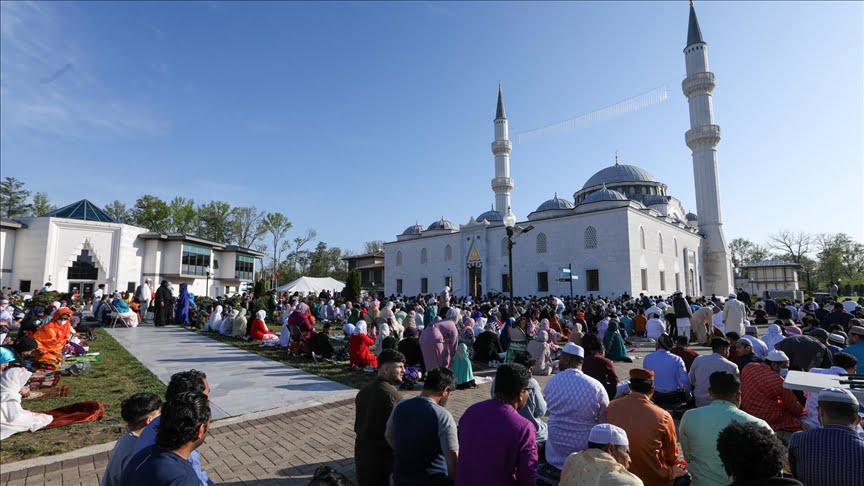
Further, it is essential to analyse the stance and agendas of the individuals contesting for elections and the narrative they want to further. Governments must be responsible for fostering inter-community spaces, organising conventions and proposing policies aimed at mitigating harassment and discriminatory behavior. At the level of civil society, efforts can be initiated to build a coalition between grassroots-level organisations and City Council lawmakers, organising solidarity events, demonstrations, press conferences engaging both Indian American Muslims and Non-Muslims.
It is imperative to ensure community engagement, dialogue and discussion together with policy measures aimed at ensuring security and dignity to the Indian American Muslims.
About the author(s)
Syeda Shua Zaidi is a student of B.A. (Hons) Sociology, at Miranda House. Passionate about poetry, filmmaking, heritage walks, social work and all things vintage, you would find her reading the works of Murakami, Khaled Hosseini and Agatha Christie while treating herself to a cup of tea. Firmly a believer of "disagreements are welcome, disrespect is not".
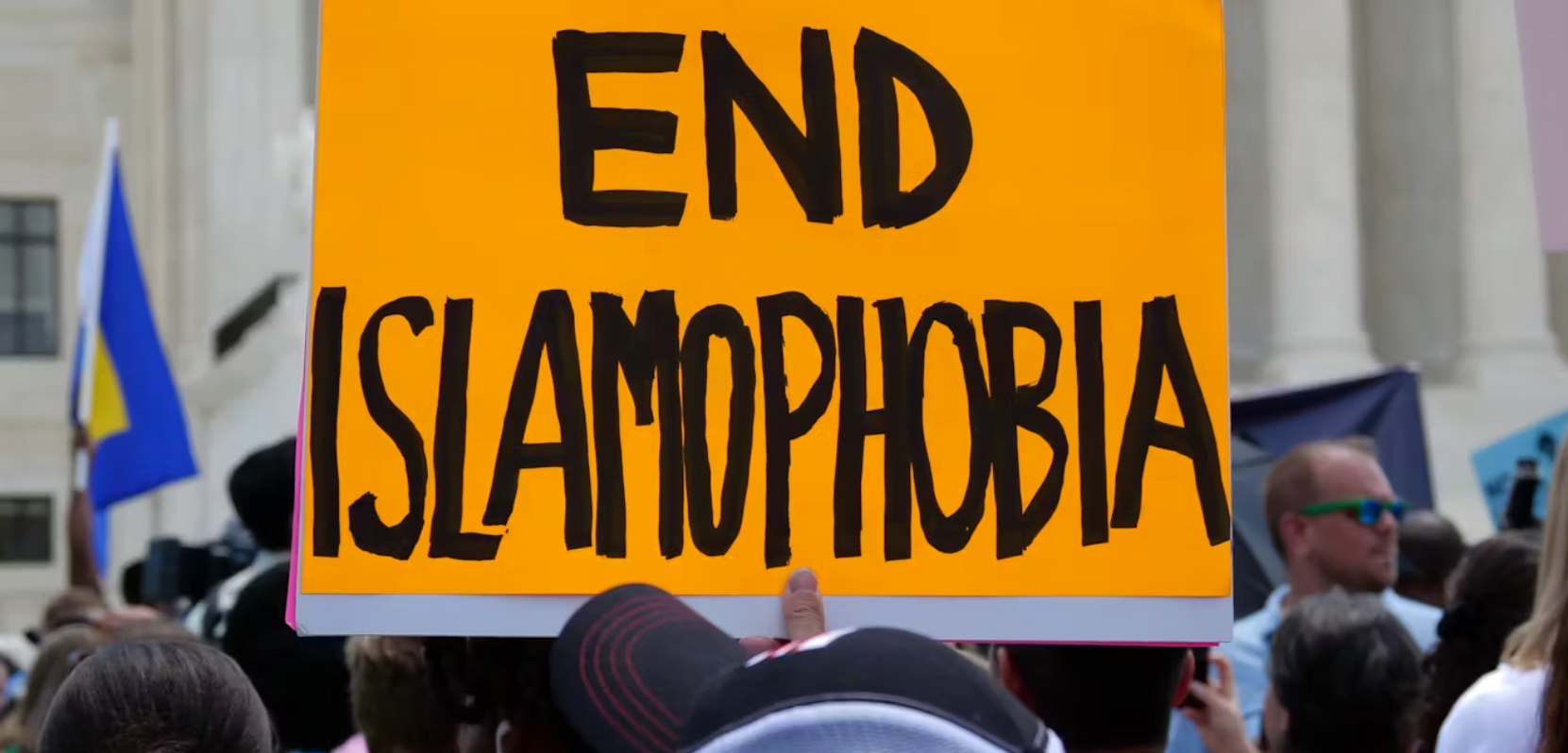


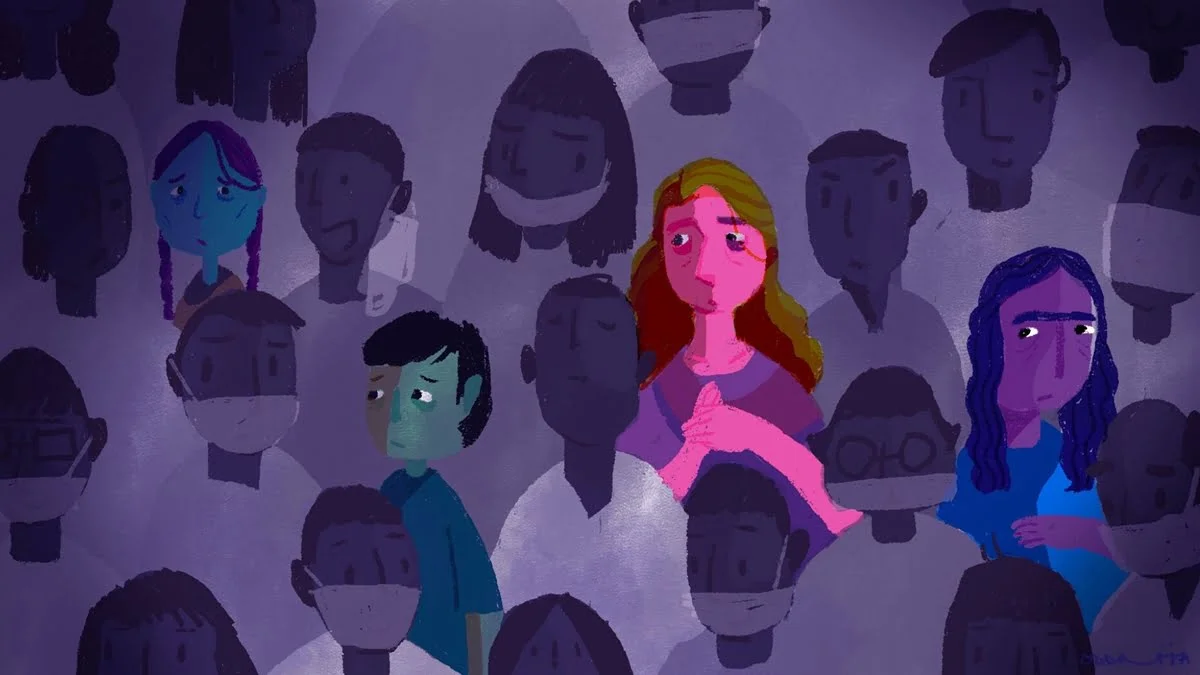



Fantastic work.